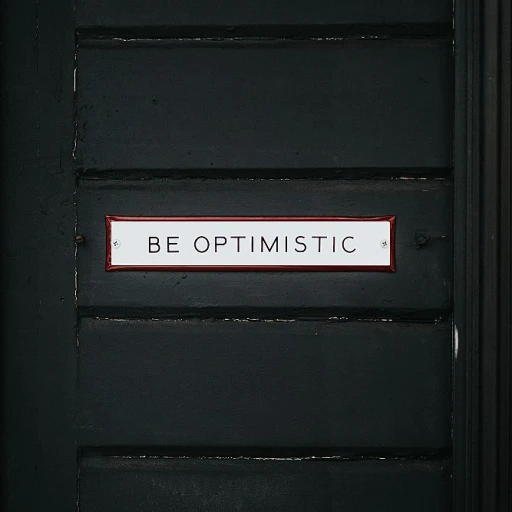Understanding Recent Legislative Changes
Recent Shifts in Background Screening Policies
Background checks have always been a staple in hiring processes, yet the ever-shifting legal landscape is keeping both employers and job seekers on their toes. Recent legislative changes across various states have introduced a new set of rules around screening procedures and have big implications for employment background checks. With over 36 states adopting Ban the Box laws and others enacting Clean Slate laws, the landscape of employment background checks is evolving rapidly. Employers from coast to coast are revisiting their hiring practices to keep up with the new compliance standards and to respect privacy concerns more than ever.
Most notably, Ban the Box laws are transforming how hiring decisions are made. These laws prevent early inquiries into an applicant's criminal history, which means no more checkboxes asking about past convictions on job applications. The goal here is to give applicants with criminal records a fair chance to make a positive first impression before they might face automatic disqualification. Following similar objectives, Clean Slate laws are paving the way for individuals to erase certain criminal records from public view. States like Pennsylvania and Utah have already adopted these measures, allowing previous offenders to rebuild their lives without the constant shadow of past mistakes hanging over them.
Employers, understandably, need guidance on navigating these nuances in background regulations — a misstep could lead to serious compliance issues. The Fair Credit Reporting Act (FCRA) sets the framework for how background checks must legally be performed, though interpretations can vary by state, and staying ahead of updates is crucial. You can learn more about FCRA regulations in our detailed guide on compliant checks.
It's clear that the state-specific nature of these laws might confuse some but staying informed and adaptable can turn a legal maze into a manageable path. The next sections will explore how these changing laws affect employers' hiring practices, the rising privacy concerns, and even touch on the critical role of technology in facilitating compliant checks.
Impact on Employers and Hiring Practices
Ripple Effect on Hiring Strategies
The world of hiring constantly adjusts to new laws and practices, and employers are fine-tuning their procedures. In recent times, the course of background checks shifted to include fair chance hiring policies like "ban the box" laws, which restrict asking about criminal history on job applications. These changes encourage employers to give applicants a fair shot, regardless of past criminal records. The balance between finding the right person and ensuring compliance with these regulations can be delicate. Many companies are adapting by fine-tuning their background checks. Rather than a one-size-fits-all approach, organizations pay special attention to the types of criminal checks conducted. Some states, for example, make it mandatory to consider specific factors before taking adverse action against an applicant. This includes the nature of the crime and the time passed since the offense.Data Security and Privacy Concerns
Privacy is on everyone's mind. New regulations have made employers rethink how they handle data. With data breaches a frequent news topic, applicants want to be sure their information is safe. Employers must comply with data privacy laws and establish secure processes to maintain applicant trust. Data protection intersects significantly with employment background checks. Laws such as the GDPR in Europe highlight the importance of protecting personal information, and although the U.S. doesn't have a federal equivalent, states like California lead the charge with their own versions. These regulations impact what data can be collected and how it's stored.Technology: The Double-Edged Sword
In today's tech-driven world, technology plays a critical role in background screening processes. Automation speeds up background checks, while AI helps analyze social media profiles on platforms like Facebook and Twitter. However, there's a catch. Relying heavily on tech can mean overlooking nuances that require a human touch, such as when assessing character beyond what the data can show. Balancing high-tech solutions with old-fashioned human judgment is crucial. The technology works best when complemented with an experienced eye to interpret results, ensuring fair hiring decisions.Roadblocks for Small Businesses
Small businesses often face more challenges than larger corporations when managing background screening. Cost and resource constraints can stunt their ability to conduct comprehensive checks. Local state laws add another layer of complexity, introducing conflicting regulations that can confuse smaller employers. The task of keeping up with changing background check laws becomes a real test, which in turn influences hiring practices. Employers might find it useful to lean on third-party agencies to help navigate compliance, though this incurs additional costs they must weigh against the risk of non-compliance.Privacy Concerns and Data Protection
Privacy and Your Background Records
In today's job market, the balancing act between conducting thorough background checks and ensuring privacy can be a tricky feat. Employers are juggling compliance with laws like the Fair Credit Reporting Act (FCRA), alongside new privacy regulations. These laws are designed to protect an applicant's data while also allowing employers to make informed hiring decisions. One rising star in this arena is the 'ban the box' movement. This policy encourages employers to consider a candidate's qualifications first, rather than immediate disqualification based on their criminal history. States across the country are increasingly adopting these laws, which makes compliance a dynamic task for employers.The Social Media Factor
Meanwhile, modern technology embeds itself further into the screening process. Social media platforms like Facebook and Twitter provide a trove of information that employers might use in pre-employment checks. However, using social media for screening raises questions about privacy boundaries and potential biases. Employers must tread carefully to avoid the pitfalls of non-compliance and discrimination.Data Security and Safeguards
With these changes, data protection has become a prominent concern. Ensuring the security of sensitive information collected during background checks is paramount for compliance with data privacy regulations. Companies now rely on advanced technology to keep this data safe from prying eyes, adopting measures such as encryption and secure data storage. Given these factors, it's no surprise that privacy concerns around background checks have employers reassessing their practices. Employers must not only stay compliant with state and national laws but also maintain the trust of applicants whose data they handle. For more insights, check out our detailed discussion about recent background screening trends. These privacy dynamics underscore the importance of hiring practices that are informed, yet considerate of personal data rights, ensuring a fair chance for every applicant.Technology's Role in Modern Background Checks
Technology in Background Checks: A Digital Game Changer
We live in a world where your smartphone is smarter than your old computer, and when it comes to background checks, technology is the name of the game. Employers are leveraging modern advancements to make their hiring screens faster and more reliable than ever before. Think of automating processes that would typically require sifting through mountains of paperwork. Just imagine being able to conduct employment background checks, from verifying criminal records to social media screening, in mere minutes. With tech tools, what previously was labor-intensive, now happens with a few clicks, ensuring compliance with the rapid pace of pre-employment checks and state laws. ### Criminal Records and Automation Automatically combing through databases for criminal history ensures no red flags go unnoticed. Many states demand that certain criminal records remain private unless deemed necessary for the job. Leveraging automation helps employers comply with diverse state laws, checking the boxes for criminal checks without delay. Incorporating tech doesn't only benefit large corporations; small businesses can now stay ahead too. Background screening services have become more affordable and scalable with tech advances, meaning even mom-and-pop shops can execute HR tasks previously out of reach. ### Social Media Scanning When it comes to social networks, like a stroll through Facebook or Twitter, the lines between public and private have blurred. Employers know this too well and have started using these platforms to gather information on applicants. Social media can reveal more than a polished resume – it shows worldviews, affiliations, and indirectly even competencies. But here’s the rub: privacy concerns and potential biases make it a controversial arena. Hence, staying within legal bounds is paramount when reviewing profiles. ### Balancing Act Between Tech and Privacy While technology is a boon for streamlining processes, it touches on sensitive personal data, raising eyebrows over privacy. Employers must walk a tightrope by protecting applicant data as laws tighten and evolve. Implementing robust data protection protocols is no longer optional; it’s a requirement for compliance. States introducing laws like "ban the box" and "clean slate" mean everything now undergoes stricter scrutiny. These regulations advocate for fair chance hiring, ensuring old criminal records aren’t unfairly used against applicants. It’s undeniable that technology has a mighty role in modern-day background screening, transforming checks into swift, seamless experiences. Yet, finding harmony between digital efficiency and privacy laws is not just a suggestion, but a mandate all employers must heed.Challenges Faced by Small Businesses
Small Businesses and the Background Check Maze
Running a small business is no walk in the park, especially when it comes to background checks. With a sea of regulations and compliance requirements, it's easy to feel overwhelmed. Small businesses often face unique challenges when trying to balance thorough screening with limited resources.
Many small business owners wear multiple hats, from managing operations to handling HR tasks. This multitasking can make it tough to stay updated with the latest background check laws and employment regulations. Unlike larger companies with dedicated HR departments, small businesses might not have the luxury of specialized staff to handle these tasks.
Cost Concerns
One of the biggest hurdles is cost. Comprehensive background checks can be pricey, and small businesses often operate on tight budgets. The expense of conducting thorough criminal history checks, employment background screening, and even drug testing can add up quickly. This financial strain can lead some businesses to cut corners, potentially risking compliance issues or hiring unsuitable candidates.
Compliance and Legal Risks
Staying compliant with state and federal laws is another challenge. Regulations like "ban the box" laws, which prevent asking about criminal records early in the hiring process, vary by state and even by local jurisdictions. This patchwork of laws can be confusing, especially for small business owners who operate in multiple locations. Failing to comply can lead to legal repercussions and damage to the company's reputation.
Privacy and Data Protection
Small businesses must also navigate data privacy concerns. With increasing scrutiny on how applicant data is handled, ensuring that background checks are conducted in a way that respects privacy is crucial. Mishandling sensitive information can lead to breaches of trust and potential legal action.
Adapting to Technology
Technology offers solutions but also presents its own set of challenges. While digital platforms can streamline the background screening process, small businesses may struggle with the learning curve or the cost of implementing these systems. However, leveraging technology effectively can help small businesses stay competitive and compliant.
In the end, small businesses must find a balance between conducting thorough background checks and managing their limited resources. By staying informed about the latest background check trends and seeking expert advice, small business owners can navigate these challenges more effectively.












